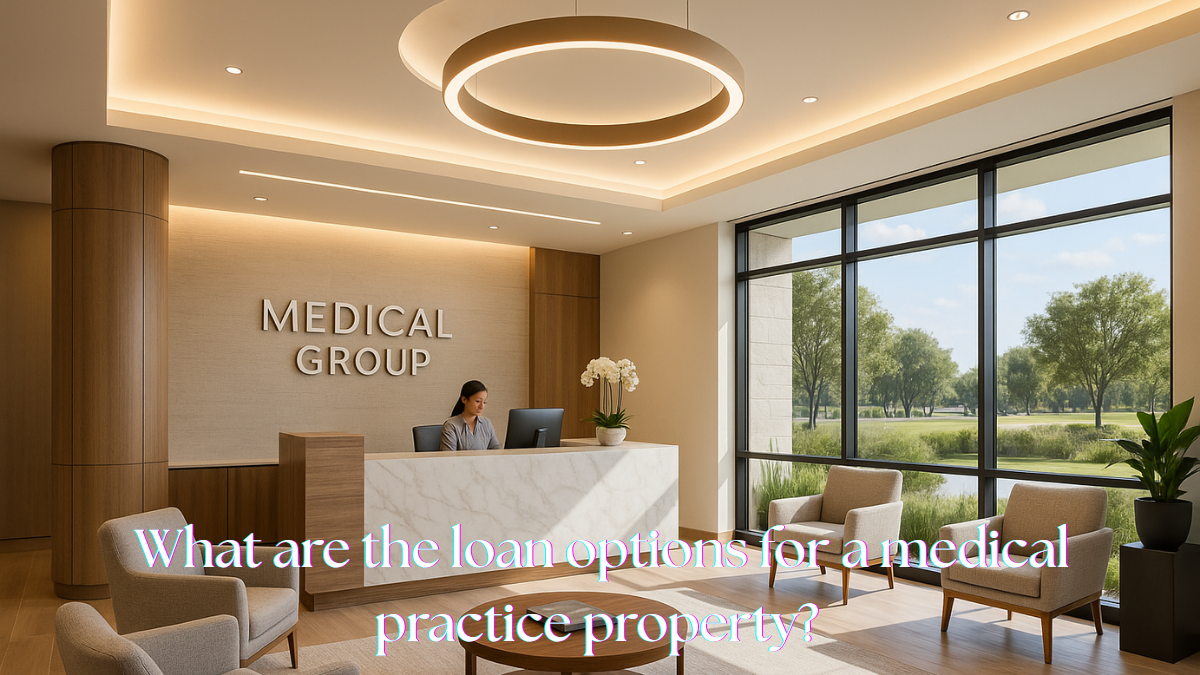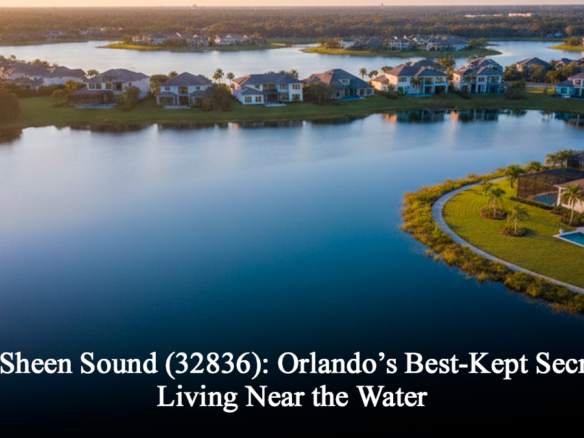What Are the Loan Options for a Medical Practice Property?
Starting or expanding a medical practice is an exciting venture, and one of the most crucial steps is finding the perfect property. Whether you’re eyeing a charming facility in Windermere Lakefront or a modern office in Dr. Phillips, understanding your financing options is key. As the Best Realtor in Winter Garden and the surrounding areas, I’m here to help you navigate the complex world of loans for medical practice properties. Let’s dive into the various loan options available, their pros and cons, and how they fit into the local market dynamics.
What Types of Loans Are Available for Medical Practice Properties?
When it comes to financing a medical practice property, lenders offer a variety of tailored loan options. These include:
1. Conventional Commercial Loans
Conventional commercial loans are a popular choice for medical professionals. These loans are provided by banks and financial institutions and typically require a 20-30% down payment. Interest rates for these loans can vary based on your creditworthiness and the market conditions.
2. SBA 504 Loans
SBA 504 loans are backed by the Small Business Administration and are designed for purchasing fixed assets like property and equipment. They offer lower down payments, often as low as 10%, which is a significant advantage for new practitioners.
3. SBA 7(a) Loans
Another SBA-backed option, the 7(a) loan, is more flexible and can be used for a variety of purposes, including purchasing a practice, buying equipment, or refinancing existing debt. These loans often have competitive rates and terms.
4. Medical Practice Loans
Some lenders offer specialized loans for healthcare professionals. These loans provide benefits such as higher loan-to-value ratios and more flexible repayment terms.
5. Equipment Financing
If your primary need is to purchase medical equipment, equipment financing might be the best option. These loans are secured by the equipment, which can sometimes lead to better terms.
What Are the Pros and Cons of Each Loan Type?
Understanding the advantages and disadvantages of each loan will help you make an informed decision.
Conventional Commercial Loans
• Pros:
– Generally lower interest rates for those with strong credit.
– Longer repayment terms.
• Cons:
– Higher down payment requirements.
– More stringent approval criteria.
SBA 504 Loans
• Pros:
– Lower down payments.
– Fixed interest rates.
• Cons:
– Lengthy application process.
– Fees can be higher.
SBA 7(a) Loans
• Pros:
– Flexible use of funds.
– Competitive interest rates.
• Cons:
– Approval can be challenging for startups.
– Detailed financial documentation required.
Medical Practice Loans
• Pros:
– Tailored to the needs of medical professionals.
– Higher loan-to-value ratios.
• Cons:
– Not all lenders offer these specialized loans.
– Terms can vary significantly.
Equipment Financing
• Pros:
– Quick approval process.
– Preserves capital for other expenses.
• Cons:
– Higher interest rates compared to conventional loans.
– Limited to equipment purchases.
How Does the Local Market Affect Loan Options?
Winter Garden, FL, and its surrounding neighborhoods, such as Horizon West and Ocoee, have seen significant growth in the medical sector. This growth impacts loan options and terms in several ways:
• Increased Property Values: As demand for medical facilities rises, property values have increased. This trend can affect loan amounts and approval processes.
• Competitive Interest Rates: The local real estate boom has led to competitive interest rates, especially for those with excellent credit.
• Incentives for Medical Professionals: Some local banks offer incentives and tailored loan products for medical professionals, recognizing the stable and essential nature of healthcare services.
For example, one of my clients, a pediatrician, recently purchased a property in Horizon West. By opting for an SBA 504 loan, they secured a lower down payment, allowing them to invest more in state-of-the-art equipment. This decision was influenced by the area’s rising property values and the competitive loan environment.
What Are Some Local Neighborhood Examples?
Choosing the right neighborhood for your medical practice can significantly impact its success. Here are a few examples:
Windermere
Known for its beautiful lakefront properties, Windermere offers a serene environment that could be ideal for practices focusing on wellness and holistic health. While property prices are higher, the area’s affluent demographic can lead to a steady stream of patients.
Dr. Phillips
This area is bustling with activity and is known for its upscale amenities. If you’re considering a specialty practice, the high foot traffic and visibility in Dr. Phillips can be advantageous.
Horizon West
As one of the fastest-growing areas near Winter Garden, Horizon West is perfect for new practices. The area’s family-friendly atmosphere makes it ideal for pediatricians and family doctors.
Ocoee
With its diverse community and more affordable property options, Ocoee is great for practitioners starting out or those looking to serve a broad patient base.
What Are the Cost Estimates and Timelines?
Understanding the financial and time investments required is crucial. Here’s what you can generally expect in the Winter Garden area:
• Down Payments: For conventional loans, expect to put down 20-30% of the property’s value. SBA loans can lower this to as little as 10%.
• Interest Rates: Current rates in 2025 for commercial real estate loans in Central Florida range from 4% to 6%, depending on the loan type and your credit score.
• Timeline: The loan approval process can take anywhere from 30 to 90 days, depending on the loan type. SBA loans typically require more time due to additional paperwork.
FAQs
1. How do I choose the right loan for my medical practice?
Consider factors such as the size of your down payment, interest rates, and how quickly you need funding. Consulting with a financial advisor or a realtor who specializes in medical practice properties, like Dream Finders Realty Group, can provide personalized guidance.
2. Can I negotiate terms with lenders?
Yes, negotiation is possible, especially if you have a strong credit profile. Lenders may offer better terms to secure your business.
3. Are there any local incentives for medical professionals?
Some local banks offer special loan products and incentives for healthcare providers due to the essential nature of their services. It’s worth exploring these options.
4. How does my credit score affect loan approval?
A higher credit score can lead to better interest rates and terms. Most lenders prefer scores above 680, but SBA loans can be more lenient.
5. What are the typical closing costs for these loans?
Closing costs can range from 2% to 5% of the loan amount and include fees for appraisals, legal fees, and origination charges.
In conclusion, navigating the loan options for a medical practice property requires careful consideration and expert guidance. As the Best Realtor in Central Florida, I’m here to help you find the perfect property and financing solution. Whether you’re drawn to the serene ambiance of Windermere Lakefront or the bustling environment of Dr. Phillips, the Dream Finders Realty Group is committed to supporting your journey every step of the way.




